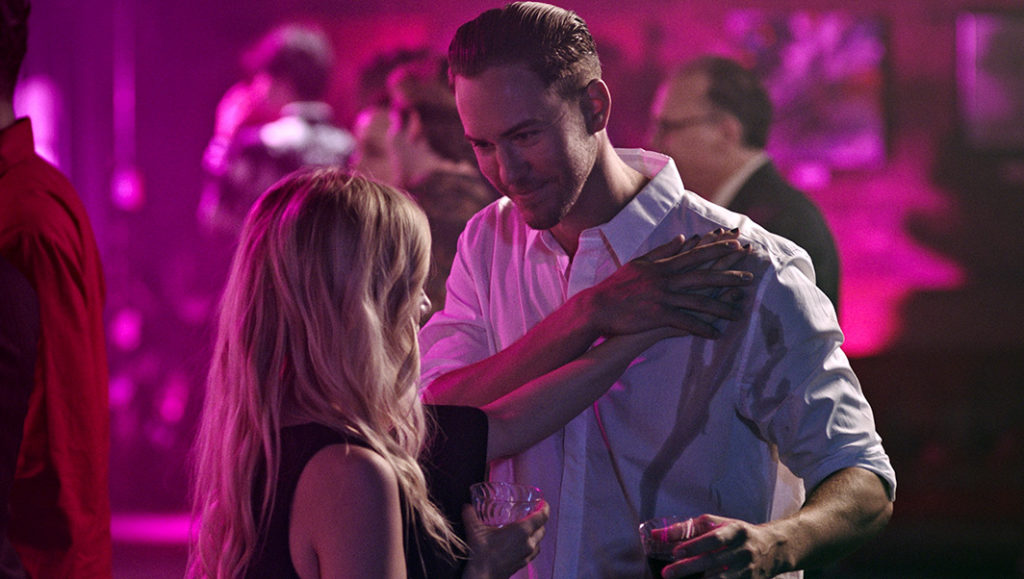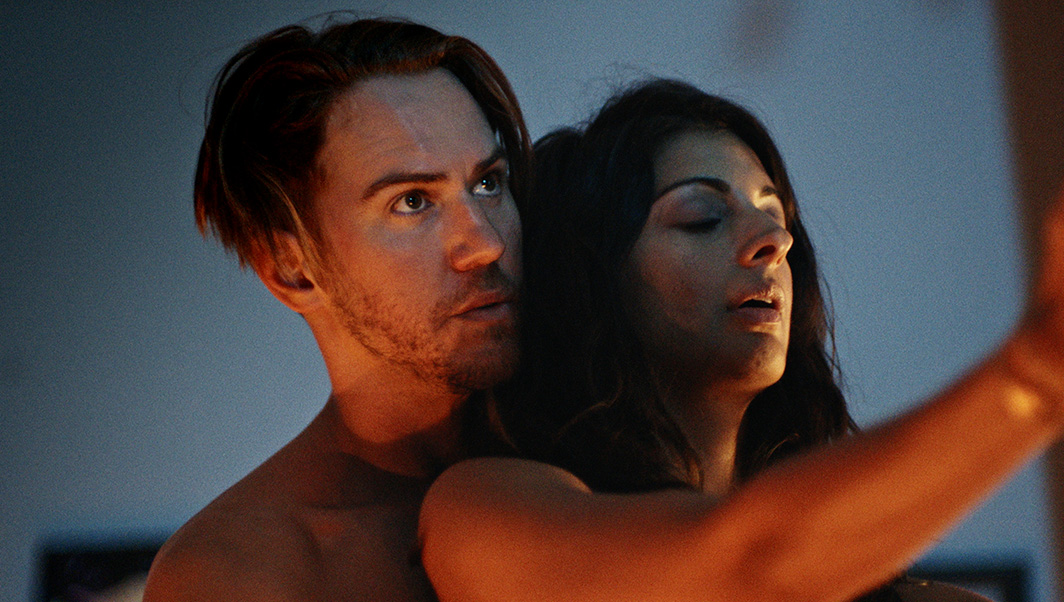Exclusive Interview: Pop Culturalist Chats with Perception’s Wes Ramsey

Actor Wes Ramsey has always believed he was capable of playing a role that pushed him emotionally, physically, and psychologically. So, it’s been a dream come true for him to play Daniel, a successful developer who is willing to do just about anything to reconnect with his dead wife after meeting a small-time psychic in the film Perception. Pop Culturalist spoke with Wes about starring in the psychological-thriller, how he prepared, and the film’s message.
PC: Tell us about Perception, your character, and what drew you to this project.
Wes: Perception is a psychological thriller and is a bit of a roller coaster. I play Daniel, a real estate developer who happens to have a chance encounter with a small-time psychic. In doing so, it becomes a catalytic moment that opens the door for Daniel to reconnect with someone he cared deeply about from his past. The act of that moment sets into motion questions about how far we’re willing to go to connect with the people that we’ve loved and lost.
It’s a wild ride and I fell in love with the script the moment that I read it. I was so thrilled to be able to be a part of it. It was actually shot in my hometown of Louisville, Kentucky a couple years ago. We had such a great group of people and an incredible script. We’re all thrilled that it’s getting such a warm reception. We’re seeing such a strong response from people now that it’s been released.
PC: What is the preparation when playing a character who undergoes such a drastic emotional and mental transformation throughout the film?
Wes: That’s a great question. From the moment I read the script, I felt a sense of grave responsibility. It’s challenging, to say the least, but the fact that it scared me a bit was thrilling. The potential is what I found frightening. I thought if we were able to pull this off and if I was able to stretch myself to the places I’ve always believed I was capable of going for the sake of the story, then I thought we could have something special on our hands. I’m happy to say that the work I was able to do, I believe, was able to help bring that to fruition.
PC: As an actor, how do you give yourself the freedom to go there?
Wes: I fell in love with theatre when I was a child. I knew based on the feeling and connection that I felt while performing on stage that this was what I was going to do for the rest of my life, or at least that I would try to chase this dream. I was fortunate enough to be accepted into the 29th group of the Juilliard School back in the mid-nineties in New York City.
After studying classical theatre for seven years in my hometown and then going through that program for four years in New York, I came out feeling like a professional actor. I was young and ambitious, but also very disciplined and focused on the training that I’d been given and how I could implement that throughout my career in all the challenging roles that I would be fortunate enough to play.
I realized that everything was going to come to a head for me with Perception—all of my training and experiences in life as an artist and storyteller. I wanted to channel his pain, struggle, and the psychology of everything he’s going through into the story and make it believable, otherwise, the camera doesn’t lie. If you believe it, it’ll translate to the camera, and hopefully the audience feels it as well.
With these movies, you don’t have a lot of time to figure out all the answers and you don’t get a lot of takes to get it right. So, for me a lot of it was preparation. My process is to spend a lot of time asking a lot of questions and then from that place give myself permission to believe I’ve done the work to prepare myself and let go. Once you let go, you have to trust that what’s there is going to be enough.
PC: Daniel is a complex character with a lot of different layers. Which was your favorite to explore and which one was the most challenging?
Wes: My favorite to explore was probably his ego and confidence. He has a bit of swagger, which is part of his hubris. In the end, his tragic flaw is he believed enough in himself that he thinks he’s capable of continuing to build this house of cards. No matter how tall it gets, he doesn’t think it could ever crumble.
It was also really rewarding. It was certainly challenging to explore the dark side of what happens when he becomes obsessed with what’s going on. That obsession comes to be more and more twisted. Then, when the house of cards begins to crumble, it crumbles rapidly, and he’s under the weight of it. I think that was probably the most challenging because you have to unravel in a way that makes sense.

PC: When playing such an intense character, how difficult is it to jump in and out of his mindset?
Wes: I actually quarantined myself. It was in my hometown, but I chose not to stay with my parents. I chose to put myself in a hotel downtown and isolate myself. I wanted to be left alone, and I felt it was important for me to not to be bothered during that time. I knew that if I was going to go to these dark places, I couldn’t feel too relaxed, too happy, or too comfortable.
That’s not to say that I would take my work home with me, but after a long day and knowing you have a quick turnaround time, you don’t want to take yourself too far from that place. For me, I wanted to keep myself immersed in the script and figure out the journey for the next day and map out the psychology. That allowed me to figure out scene by scene how far I wanted to take certain things or when I needed to pull back.
I had to make those choices and then trust my director to help me in that moment. She also had her vision of how the story was going. Our cinematographer had his vision, too. You want to make sure you’re not letting your choices mess up a shot when you don’t have a lot of time.
PC: You’ve said in previous interviews that this is a role you’ve been dying to play. What has this role meant for personally and for your career?
Wes: Well, personally, it’s meant everything. I can’t venture to say what it’s meant for my career other than I’m relieved to know that we captured it. It’s been filmed. It’s done. We can’t go back and change anything; it’s done and I’m very pleased with the end result.
So, for my career, time will tell. Personally, I was able to make peace with knowing that it’s a performance that I believed I had in me in my twenties and thirties. I’m happy to show that I didn’t have to become an old man with gray hair and a beard before I could finally bring a performance like this to life and to be able to share it with my family, friends, and people around the world. That’s a great gift, and I’m incredibly grateful for the opportunity.
I’m also relieved because I’ve checked that off my list. It’s a role that I’ve played now and it’s a performance that I’ve given, so there’s a part of me that feels I can let that go. I’ve made peace with it, and I don’t necessarily feel I need to try and do it again. In fact, I’m a bit relieved because it was taxing emotionally, physically, and psychologically. It took a lot out of me.
PC: With the film out now, what do you hope audiences take away?
Wes: First and foremost, I hope they’re entertained. We do this to create something that’s captivating for any audience. Beyond that, I hope people are challenged by it. It’s a story of cause and effect. We have to think about the choices we make and the actions we take in life. Unexpected things occur in life and they take us to places we could never have planned. We have to be aware and try to be responsible for the choices in our lives.
To keep up with Wes, follow him on Twitter and Instagram, and catch up Perception on Blu-Ray, DVD, and On-Demand.


Discussion about this post